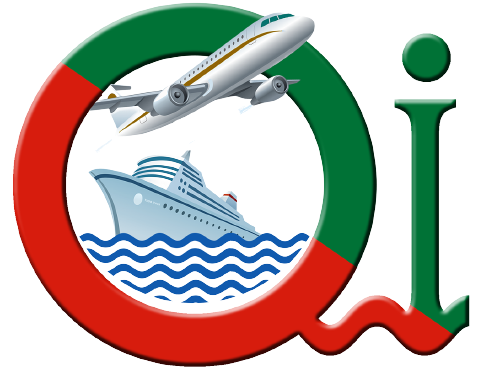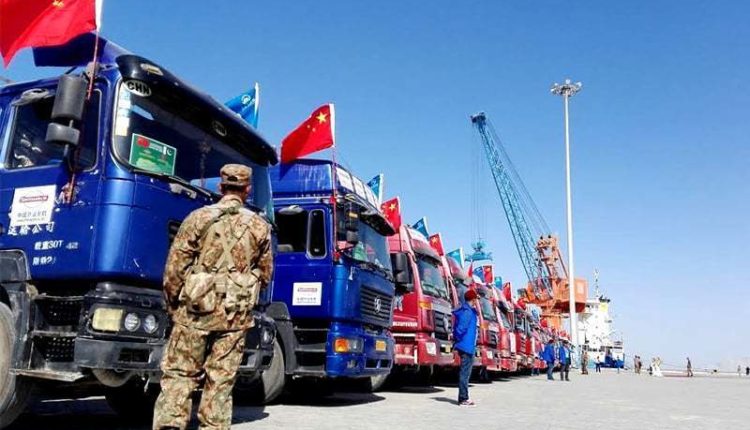C-pack and security issues:
The Pakistan Navy and the Chinese Navy will work together to protect and secure trade routes. It has become critical to improve the Pakistan Navy’s gauge capacity. The Pakistan Navy has had a special task force, TF-88, to secure maritime trade routes since December 2016.
The Sindh government will send 2,000 police officers to protect the C-Pak road, while the Punjab government will send 5,000 police officers and the Pakistan Army will send 12,000 troops.
China intends to give the Maritime Security Agency four ships. For regional security, Pakistan has established a special security division. To protect Chinese laborers on the route, Pakistan plans to train 12,000 security officers. 8,000 Pakistani security troops had been deployed to protect over 8,100 Chinese workers in Pakistan as of August 2015.
There is strong evidence that India is helping the anti-C-Pak campaign. Since the start of Operation Zarb-e-Azb, there has been a considerable decrease in violence in Pakistan. According to the South Asia Terrorism Portal, 3,001 civilians were killed in terrorist strikes in 2013, but only 612 were killed in 2016, the lowest number since 2005.
India Objections:
While work is continuing to rebuild the Karakoram Highway in Gilgit-Baltistan, an area claimed by India, the Indian government has expressed strong opposition to the C-Pak initiative. Indian Foreign Minister Sushma Swaraj purportedly told Chinese Communist Party General Secretary Xi Jinping during Prime Minister Narendra Modi’s 2015 visit to China that intentions to traverse Gilgit-Baltistan were “unacceptable.”
During a meeting with Chinese Foreign Minister Wang Yi in August 2016, Swaraj reiterated his position, saying that India will vehemently oppose transit across Kashmir.
Despite these unfounded concerns and doubts, there is no question that the China-Pakistan Economic Corridor would provide Pakistan with a secure and prosperous future. However, it’s tough to overlook the reality that C-Pack has numerous issues and hurdles.
Internal and external forces opposed to Pakistan never want this development and stability project to succeed and provide Pakistan enduring peace and prosperity. It’s also worth noting that Pakistan has a geographical position that makes it unique in the globe, and all of the world’s major nations Pakistan cooperate.
The rapidly changing situation in the region, particularly in the aftermath of the ‘United States‘ humiliating withdrawal from Afghanistan and the formation of the Taliban government, has increased the need for all political, religious, linguistic, and regional parties in the country to come together. Forget about disagreements and frustrations, and focus on the country’s integrity and survival. Take the field for the successful completion of a major project like C-Pack, which holds the key to the region’s prosperity.
Criticism on C-Pack
Despite the fact that Britain and other major Western powers were once considered the founders of the colonial system, many critics in the Western media perceive C-Pack as a neo-imperialist endeavor. Within the country, there are those who argue against the plan while promoting the exterior agenda.
Political forums and the media have attacked some elements and technical details of the C-Pack route. The former Khyber Pakhtunkhwa Provincial Assembly approved a resolution condemning the former central government’s decision to withdraw the projected project’s multibillion-dollar route from Khyber Pakhtunkhwa.
The route disagreement, according to the Institute of Strategic Studies Islamabad (ISSI), is unjustified. The Chinese government made a statement in 2015 in response to opposition to the C-Pack, asking Pakistani political parties to reconcile their disputes over the scheme. Some also claim that Chinese goods via the Karakoram motorway have reached the local Pakistani market, where they are cheaper due to Pakistan’s relatively high production costs, resulting in trade imbalances.
Some Baloch nationalist leaders reject large-scale development projects under the C-Pack, claiming that the province’s natural resources will be taken away from local people. Some claim the C-Pak is a “conspiracy” intended at resettling migrants from other parts of Pakistan in order to reduce the Baloch population in the province to a minority. However, the vast majority of the province’s residents see C-Pack as a source of progress for both the country and the province. The beneficial effects are already being felt by the locals.
Some locals believe they may be evicted as a result of negative propaganda. The Pakistani government has guaranteed them that local residents will not be denied benefits and will have first access to all facilities.
In addition, the people of Gwadar will be regarded as major partners in the city’s master plan, and fishermen will be involved in the project explicitly. COPHC, the developer of the Gwadar Port, has also stated that it will assist Gwadar fishermen in improving the region’s seafood business by implementing local seafood programmers.






Join our affiliate program today and start earning up to 30% commission—sign up now! https://shorturl.fm/jwgj9
Join our affiliate program today and start earning up to 30% commission—sign up now! https://shorturl.fm/UT4DN
Boost your profits with our affiliate program—apply today! https://shorturl.fm/fMgXa
Earn passive income on autopilot—become our affiliate! https://shorturl.fm/FESkn
Share your link and rake in rewards—join our affiliate team! https://shorturl.fm/vJR8v
Unlock exclusive rewards with every referral—enroll now! https://shorturl.fm/Jzpl1
Apply now and receive dedicated support for affiliates! https://shorturl.fm/MCfK5
Start profiting from your traffic—sign up today! https://shorturl.fm/1aTND
Drive sales, earn big—enroll in our affiliate program! https://shorturl.fm/xYLqR
Partner with us for generous payouts—sign up today! https://shorturl.fm/SDMQS
Refer friends, earn cash—sign up now! https://shorturl.fm/cP3AM
Start sharing, start earning—become our affiliate today! https://shorturl.fm/eYZqj
https://shorturl.fm/DL1Km
https://shorturl.fm/WMV5c
https://shorturl.fm/n44Iu
https://shorturl.fm/He8qL
https://shorturl.fm/3AknL
https://shorturl.fm/rWa27
https://shorturl.fm/xLwvS
https://shorturl.fm/EHngT
https://shorturl.fm/y8W9y
https://shorturl.fm/byDcA
https://shorturl.fm/2QnSy
https://shorturl.fm/XgtWW
https://shorturl.fm/yMqy2
https://shorturl.fm/2w6sW
https://shorturl.fm/0rxFM
https://shorturl.fm/bSl33
https://shorturl.fm/R8cac
https://shorturl.fm/NprmG
https://shorturl.fm/ODnb7
https://shorturl.fm/f6Tt8
https://shorturl.fm/v9pWe
https://shorturl.fm/3Rnur
https://shorturl.fm/23spc
https://shorturl.fm/MpeH4
https://shorturl.fm/BBA14
https://shorturl.fm/ZCbIt
https://shorturl.fm/721r8
https://shorturl.fm/F77so
https://shorturl.fm/bIZbF
https://shorturl.fm/2fjI0
https://shorturl.fm/iH8Q8
https://shorturl.fm/M3oGf